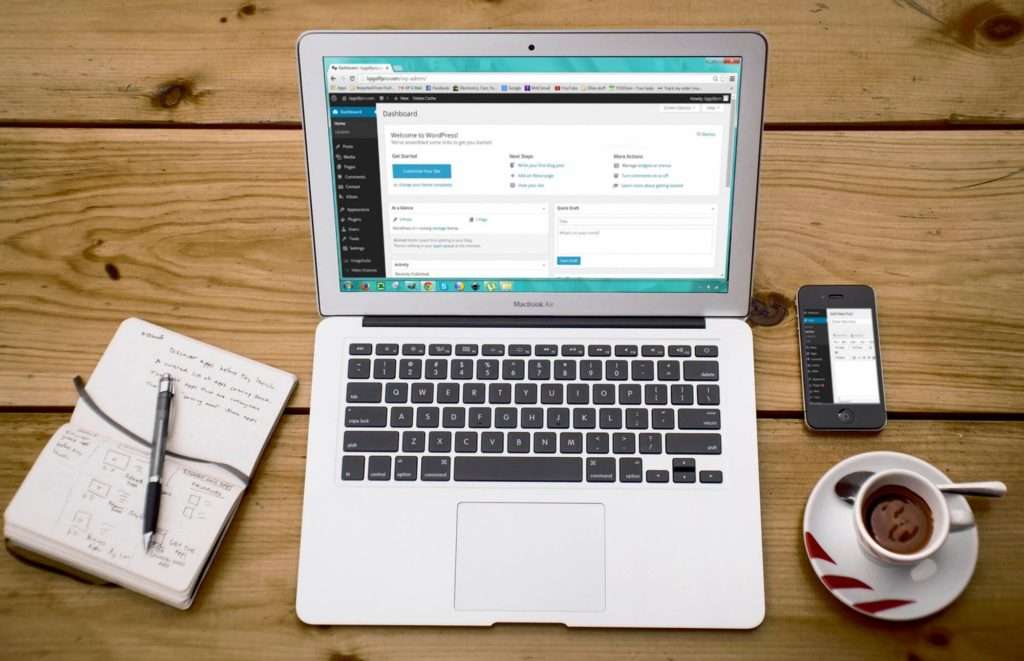The Idea of starting a blog is a fascinating one; as a matter of fact, blogging is one of the top ways to make money online. Don’t get me wrong, starting a blog won’t make you money instantly, it’s takes more than starting a blog to earn your first paycheck either from Google AdSense, selling your product, affiliate marketing, etc., In this article, we are going to look at how to start blogging as a business in 2025.
Table of Contents
How to Start Blogging as a Business in 2025
Maybe you’ve come across an article that mentioned starting a blog as a passive way to make money online and you are ready to explore that possibility of turning your hobby into a life changing money making adventure. Wait, before you resign from your job and focus on blogging as a business, let’s explain two important component of starting a blog – technical and business.
The Technical Component of Blogging
If you already know how to set up a blog, this part is not for you, you can move over to the next part. This part is for complete beginners. With that in mind, let’s dive into the technical component of blogging.
What is the technical component of blogging?
Many people have come up with different definition, but to me, it involves those little stuffs you are struggling with in your blogging journey. It may include:
- Coming up with a blogging name
- Deciding on a blogging Niche
- Choosing a domain name provider and hosting
- Setting up your blog with WordPress or any other content management software
How to Come up with a good blogging name
Your blogging name also known as Uniform Resource Locators or URL for short is your street address on the web. This is what people will use or use to locate your blog and engage with your content or buy your product.
Sometimes coming up with a good URL for your blog can be challenging as you may discover that most of your suggestions must have already being taken by other people. For instance, a friend approach me sometimes last year to set up a one page blog for his product. The one page blog was to display his products, his brand information and customer reviews.
He had some names in mind for his URL, unfortunately all his suggestions were already taken. After a little back and forth, we had to settle for his local dialect for the product he was selling which is shoe, and we did some on-page Search Engine Optimization (SEO) on the blog, the rest is history.
If all your suggestions has been taken in English, you can look at other languages or a combination of some popular acronyms that defines your product and use. Then leave the rest for SEO.
How to Choose a Good Blogging Niche
I had a debate with some 6 figures bloggers a few years back and all their advice was “focus on what bring the money first, not what you are passionate about, then chase your passion after you’ve started making the money”. When I probe further, one of them advice that, if what brings money is the Insurance niche for instance and you are not passionate about insurance, you can employ writers who are passionate about insurance to create contents while you manage the whole process. According to them, what this will do is that the Insurance blog will have great contents written by people who are passionate about insurance, thus improving your blog rank on search.
If you want to start blogging as a business, before choosing a niche do a research on top paying niche, and pick any that you are passionate about or pick one and employ people who are passionate about the topic to work for you.
How to Choose a Good Domain name provider and Hosting Provider
When it comes to domain name and hosting provider, my advice is choose a provider with good customer support, especially if you are a beginner, so that when you have an issue, you can easily contact them for support. Domain name and hosting provider must not be the same; for instance, you can get your domain name at namecheap or godaddy, etc., then your hosting can be at Bluehost or Siteground, etc.,
The bottom line is to do your own research and find out the domain name provider and hosting name provider that will be suitable to support your journey online. Read many reviews on them online or get recommendations from friends before starting your blogging.
How to Point your Domain name to your web hosting provider
After buying your domain name and paying for hosting, the next thing is to point your domain name to your hosting provider so that your website can be live.
Here is how to do it.
- Find the Domain Name Server or DNS for short at your web hosting provider and copy them. The DNS usually looks like “ns1.example.com and ns2.example.com”
- Log in to your Domain name host or registrar, then find and locate the DNS or nameserver section and add the DNS your copied from your web hosting provider there
- Wait for DNS propagation
How to Set up WordPress on Your Blog
WordPress is the most popular content management software for blogging. To set up WordPress on your blog, follow the listed step
- Log in to your blog cPanel via your Web hosting site
- If you are using a hosting provider like namecheap, Select the Softaculous Apps Installer icon, then select WordPress Icon, Input your domain name and complete other setting, then hit install. The installation process take few seconds. After the installation process, you can log into your site via (www.yoursite.com/wp-admin) and input the log in details you put during installation to access your WordPress dashboard on your blog
- If you are using other hosting provider, It almost the same provide, after login into your cPanel, locate Site tools, then look for WordPress and Install.
Welcome to WordPress
Once you login to your WordPress dashboard, the next thing is to manage your site, the first thing most blogger do, is to install a coming soon blog, so that people will see coming soon when they visit the site while they work on the site to design a good theme and start putting content.
On the theme:
It’s Important to choose a good theme, most free theme may not really give you what you want, you can visit sites like mythemeshop.com, generatepress, etc., and get a theme or your choice. There is always installation instruction on where you purchase the theme that will guide you to install the theme on your blog via the WordPress Dashboard. Be sure to read theme reviews before settling for one, to avoid any regret.
On Plugin
WordPress provides an avenue where you can add many free and paid plugin from third-party to enhance your blogging experience. Some popular plugin include Yoast plugin for SEO, Jetpack, Site Kits, etc., You have to look for plugin that will make your blogging journey easier, from caching plugin to social media sharing plugin, etc.
Start Posting Your Content
The next step is to start adding content and ensuring that they are original content and comply with basic SEO protocols so that your sites can appear on Google search
Blogging as a business: The Business component of Blogging
Work as a CEO not just as a Writer
If you want to start blogging as a business you have to work as a CEO not just a writer. As a CEO, you need to constantly evaluate your blog needs in term of contents, value and traffic. E.g.,
- What are the trending Keyword?
- How are we performing with SEO
- What are the Monetization opportunities?
- What are the most performing contents.
- Then build a system to grow your domain authority
What this means is that you don’t just write and post, you edit, monitor, track perform and constantly review your contents to rank high on search. It’s not enough to write quality contents, you have to write it in a way that people will be see it and will be willing to engage with it.
What are trending Keywords?
Keyword research is very important if you want to start blogging as a business, you need to look at your chosen niche and look at the top trending keywords on that niche, for instance if your chosen niche is Insurance, you can visit other insurance blog and use tools like smerush to do keyword analysis on them. Your research will give you content ideas to research and write on.
SEO is Important
The reason why you start a blog is to be visible, if you are not visible, you won’t get the traffic and if you don’t get the traffic you won’t make money from blogging. To be visible, you need to understand SEO, SEO is the roadmap to your blog visibility. Note: Don’t write for SEO, write for people but make sure it’s complies with all SEO guidance.
Read: 7 Common SEO Mistakes That You Need To Avoid
Monetize your Blog
Once your blog start having traffic, it’s time to start looking for the money. There are many ways to monetize your blog. We are going to look at just 3.
- Google AdSense: You can apply for Google AdSense, if approved, Google pay you a fair share of commission via third-party ads, they will share on your blog. AdSense revenue is mostly based on click and impression.
- Affiliate marketing: Most bloggers are making a fortune from affiliate marketing. You need to search for highest paying affiliate marketing brand to apply. It’s important to look at their requirement and reviews online before applying for one. One your blog is approve, you can pay professionals to create contents around the brand you choose, optimize the content for SEO and promote on Google Ads. Always remember the more people that get the product or service from your link the more money you make.
- Sell your own product: You can sell your own product on your blog and make money or use dropshipping to sell products on your blog and also make money. You can also sell online course. To succeed, you need to invest in good content and advertisement.
What are your most Performing Contents?
Knowing your most performing content will give you an idea of what people like about your blog, this can help you with more content ideas and also give you an avenue to reach more potential buyers/client via your affiliate links.
Blogging as a Business: Build system to grow your domain authority
To stay ahead of the game and enjoy your blogging journey, building a system to grow your domain authority is important. The more your domain authority grows, the more your traffics and money values grows. Invest in good guest writing opportunities, do link in-building in your blog and write quality and original contents only.

